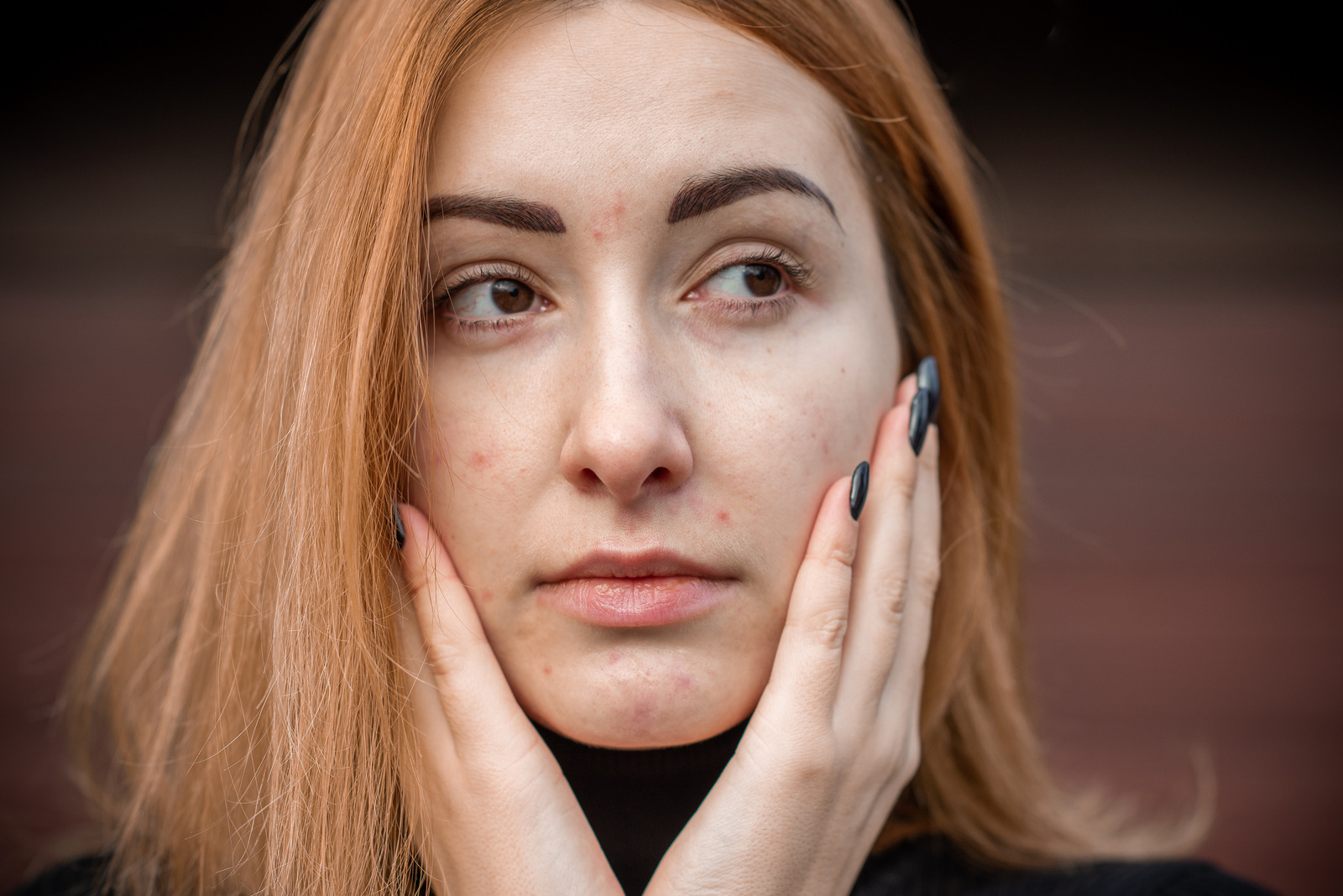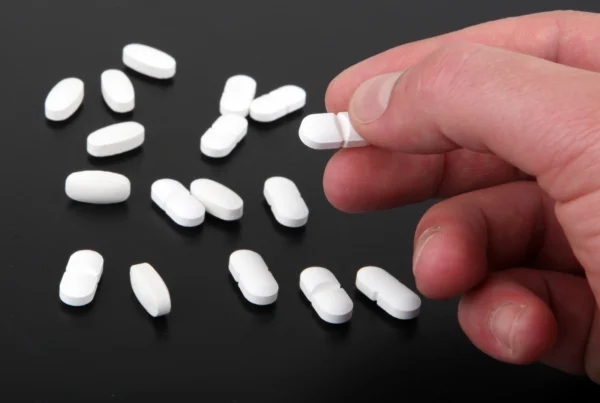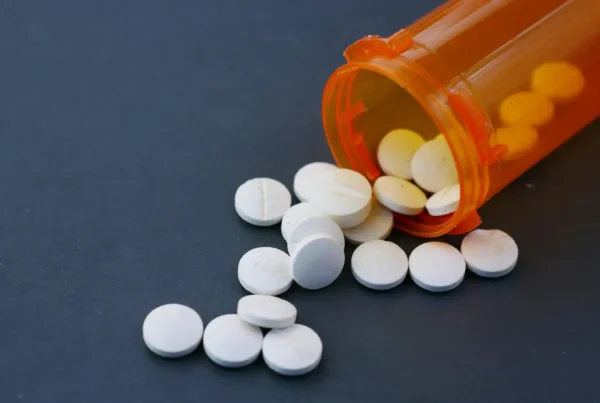
Table of Contents
- What Is Accutane (Isotretinoin)?
- Can You Drink Alcohol if you’re taking Accutane (Isotretinoin)?
- Liver Problems
- High Cholestrerol
- Reduced Night Vision (Low Risk)
- Increased Risk of Depression and Behavioural Changes
- When can you start drinking after you’ve stopped taking Accutane?
- Other Side Effects of Accutane?
- Staying Safe on Accutane
Key Points
- Isotretinoin is a commonly prescribed acne drug that was prescribed under the brand Accutane.
- Accutane and other isotretinoin brands can have serious interactions with alcohol consumption, including liver toxicity.
- Isotretinoin has other potential interactions and safety risks, including skin problems and organ damage.
Accutane (isotretinoin) is a prescription medication used to treat severe, cystic acne that hasn’t responded to other treatments. While the brand name Accutane was discontinued in 2009, the generic form — isotretinoin — is still commonly prescribed.
It’s strongly recommended to avoid alcohol while taking isotretinoin/accutane. Both alcohol and isotretinoin can strain the liver and raise triglyceride levels, which can increase the risk of serious side effects like liver toxicity, pancreatitis, and high cholesterol.
In addition to these risks, drinking alcohol while on isotretinoin may worsen side effects such as dry skin, nausea, headaches, and mood changes. Alcohol itself can also trigger or worsen acne.
Isotretinoin can remain in your system for several days after your last dose — so it’s best to talk to your healthcare provider about when it’s safe to resume drinking alcohol after completing treatment.
Avoiding alcohol during your course of isotretinoin not only reduces the risk of serious side effects, but also helps support your overall health and the effectiveness of your acne treatment.
What Is Accutane (Isotretinoin)?
Accutane was a popular brand of isotretinoin that was prescribed to treat acne. The original name brand Accutane has been off the market since 2009 partly because of its side effects. However, the name “Accutane” has become synonymous with generic isotretinoin, which is still in use.[1] Other brands currently on the market include Myorisan, Sotret, Amnesteem, Claravis, and Absorica.
Isotretinoin is a retinoid, which is derived from vitamin A. With its potency, Accutane can induce long-term remission for acne in about 50% of people after about four to six months of treatment.[2] For some people, treatment may take a year before their acne is in remission.
How Does Accutane Work?
Isotretinoin’s effectiveness in treats acne by reducing sebum production, inhibiting the growth of acne-causing bacteria, reducing inflammation, and normalizing skin cell shedding to prevent clogged pores.
The retinoids in isotretinoin are behind the drug’s ability to treat acne when more conservative treatments fail, but they’re also the cause of many of accutanes more serious side effects like dry skin, high cholesterol, and sun sensitivity. Though uncommon, liver toxicity is also a risk with Accutane, which is why it’s crucial to avoid alcohol while taking the drug.
Can You Drink Alcohol if you’re taking Accutane (Isotretinoin)?

Combining them could led to severe liver damage and other adverse health effects. Unless you have express permission from your doctor, avoid drinking any alcohol while taking Accutane and for a period after stopping while the drug clears your system. You should also consider avoid other products that contain alcohol, such as mouthwash, cough medicine, herbal cooking extracts, and culinary wine.
Combining Accutane (Isotretinoin) and alcohol can also exacerbate side effects from Accutane like an increased rapid heartbeat, nausea and vomiting, and warm skin.[3]
Liver Problems
As mentioned, both alcohol and Accutane can increase your liver enzymes. Alone this is often not an issue, but together they can combine to cause liver damage. Some of the signs of liver damage include:
- Jaundice (yellow skin and eyes)
- Light-colored stool
- Dark urine
- Abdominal pain
- Fatigue
Alcohol can also cause your body to break down your dose of Accutane quicker than intended, which can be counter productive to your treatment goals.
High Cholestrerol
Another risk of taking Accutane is that it raises the levels of fats such as triglycerides and cholestrerol in the blood, which can cause pancreatitis.[4] This is a painful and potentially life-threatening condition in which the pancreas becomes inflamed. The symptoms of pancreatitis include vomiting, abdominal pain, rapid heart rate, fever, fluid buildup, and low blood pressure. Excessive alcohol use can also cause pancreatitis, so the risk is compounded when you mix the two drugs.
Reduced Night Vision (Low Risk)
Isotretinoin may cause issues with your sight, including issues with night vision. These effects are uncommon but can impact activities like driving. Patients should be aware of these potential side effects and exercise caution, especially when driving at night. If you’re not sure how isotretinoin affects you and drink alcohol, you could have an increased risk of a severe car accident.You should avoid drinking any alcohol while taking Accutane, but there are other potential interactions and safety guidelines to be aware of.[5]
Increased Risk of Depression and Behavioural Changes
Some people experience severe behavioural changes like agitation or suicidal ideation while taking Accutane (Isotretinoin). Alcohol is a depressant and may amplify mental health concerns, which is another reason to avoid drinking while taking Accutane.
Speak to your doctor about any concerning mental health changes while on Accutane.
When can you start drinking after you’ve stopped taking Accutane?
Accutane lasts in your system up to 8 days after a single dose, but it could take longer to clear from your body if you have been taking it for an extended period of time. Most courses of Accutane last around 4-5 months or less, so it is best to check with your doctor before starting to drink alcohol again after being on Accutane.
Other Side Effects of Accutane?
Isotretinoin carries a serious risk of birth defects. People on isotretinoin receive pregnancy tests prior to starting the medication and must have two forms of birth control to prevent pregnancy while taking the drug. You shouldn’t give blood while on isotretinoin to avoid potential birth defects in people receiving the donation.
As a derivative of vitamin A, it’s best to avoid taking vitamin A supplements or vitamin supplements that contain vitamin A unless directed by your doctor. It’s important to discuss your medical history and any vitamins, supplements, and prescription or over-the-counter medications with your doctor to avoid potential interactions.
Dry skin is a common side effect of isotretinoin, but in rare cases, serious skin conditions like toxic epidermal necrolysis and Stevens-Johnson syndrome can occur. Isotretinoin also increases sun sensitivity and possible scarring, so you must use protection for sun exposure and avoid cosmetic procedures like waxing or laser hair removal while on isotretinoin.
Staying Safe on Accutane
Accutane and alcohol can be a dangerous combination, especially for people who binge drink or have an addiction to alcohol. If you’re struggling with alcohol addiction and need to take isotretinoin, you can’t simply stop drinking abruptly. Alcohol withdrawal can have life-threatening complications.
Fortunately, support is available. Alcohol addiction treatment can help you stay safe during withdrawal and address the underlying causes of addiction. After you complete alcohol rehab, you can take isotretinoin without the risk of having a drink and experiencing serious health complications.
Frequently Asked Questions
OCEAN RECOVERY EDITORIAL GUIDELINES
The internet contains a vast amount of misinformation, but when it comes to your health only peer reviewed, research centered data matters. At Ocean Recovery, all content published throughout our website has been rigorously medically reviewed by a doctorate level clinician, and cross checked for medical accuracy. Our editorial process helps our readers trust that the information they are consuming is factual and based upon scientific data. Your health is our top priority, find out more about how we safeguard the integrity of information on our website. Read More About Our Process




